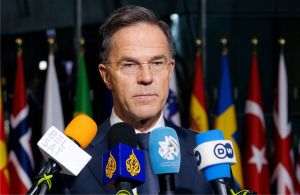The brief press conference whereby Victor Ponta had announced "deposing his mandate" (he had not yet sent his formal resignation to the president by the end of the afternoon) focused on the idea of taking political responsibility. The former prime-minister tried to turn a political act which was occurring through Tuesday's large scale spontaneous protests into an action that has ethical meaning.
Thus, Victor Ponta has unwillingly paid a post-mortem compliment to Max Weber, the sociologist who, one century ago, in a book about the connection between vocation and profession in politics, analyzed the ethical conditions in politics.
After Weber, whom we should periodically reread, all the actions that are claimed to be ethical depend on two irreconcilable principles: the ethics of conviction and of responsibility. Or, even though through his statements, Victor Ponta, like a regular professional politician, appears to want to remain in the country's political history as a responsible politician, he has not admitted any guilt, but instead he has "bowed down" before the people. But, if we were to believe Weber's maxim, "we are responsible for the consequences of our own actions", then Victor Ponta should have taken full responsibility for a crisis (yet another one) that Romanian has been pushed into by his politicians.
Ponta's resignation has nothing ethical: it is the result of an unfavorable political context. Amid the protests that were threatening to escalate (and that threat has not diminished since then!), the PSD opted to drop an already an already inconvenient prime-minister and a government that had already been weakened by several successive crises. And the scandal surrounding the death of policeman Gigina, which predated the great Tuesday night protest started by the powerful collective emotion caused by the fire of the "Colectiv" club was already hinting at the existence of a certain state of mind.
By abandoning Ponta, the PSD will not abandon the government by default, but it could gain its independence from its allies, which, like the UNPR, were inconvenient. But the most important objective of the PSD was to limit and contain the political damage caused by the protests, to avoid affecting the reelection chances of its mayors, especially of those in the major cities where public opinion can quickly turn.
Lacking political support, or, as the " sources" say, advised by Liviu Dragnea to resign, Victor Ponta bows before the will of his own party. From here, from an institutional point of view, the whole responsibility for resolving the government crisis, as well as a cohesive answer from that chunk of the public opinion that has mobilized, lies with president Iohannis. Now, one year from his election as president of Romania, Klaus Iohannis is going through the most difficult test of his mandate. Will he find the solution that ensures political stability and gives satisfaction to the active part of society? Or will he fall into the trap of the technocrat government? Will it be a milestone event, which will establish whether Klaus Iohannis is indeed a promoter of politics reconciled with ethics or whether he has become just another regular Bucharest politician.
Victor Ponta's resignation as prime-minister arrived at the presidency on Wednesday evening.























































